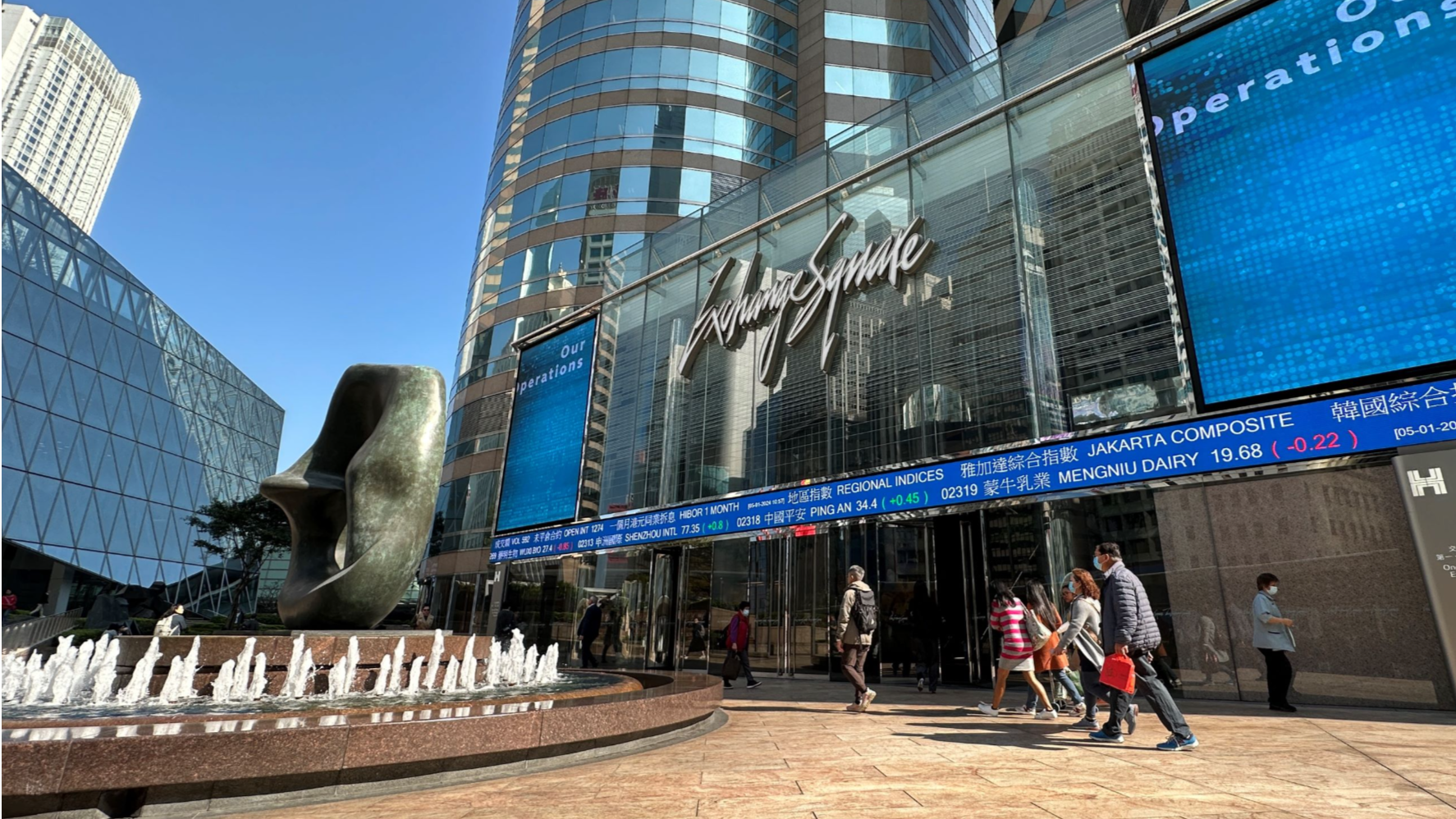- Second community lounge opens for grassroots
- E-platform to enhance GBA collaboration in dispute resolution
- HK stocks rally on more short-selling curbs ahead of Third Plenum
- Over 100,000 HK professionals to join child abuse reporting network
- Fidelity International favors global equities over global funds

Hong Kong stocks rallied on Thursday as the country’s securities regulator announced more restrictions on short selling and pledged tighter oversight of computer-driven quantitative trading to bolster market confidence.
The measures came ahead of the anticipated policy announcements from the four-day third plenary session of the 20th Communist Party of China Central Committee, set to convene on Monday.
Independent stock commentator Conita Hung Lai-ping said the market's response to these policies “has been limited”, mainly due to unfavorable market sentiments, declining trading volume, and an ebbing in the scale of margin financing and securities lending
The benchmark Hang Seng Index rose 2.06 percent to 17,832.33. The Hang Seng China Enterprises Index, which tracks large Chinese firms, advanced 1.93 percent.
READ MORE: Doom-mongers can’t see the obvious truth about Hong Kong
Electric-car makers were firmly in the positive. Xpeng surged nearly 12 percent to HK$33.05 ($4.23) and Li Auto advanced by 7 percent to HK$82.55.
The Chinese mainland’s Shanghai Composite Index climbed 1.06 percent.
The China Securities Regulatory Commission announced late Wednesday it will raise margin requirements for short selling starting on July 22 and pledged to further regulate quantitative trading strategies. State-backed China Securities Finance, the country’s biggest stock lending provider, will suspend lending shares to brokerages for short selling.
The new measures are seen as a continuation of China’s regulatory move to discourage short selling since last August, amid mounting bearish sentiment toward Chinese shares as the country’s blue-chip CSI 300 index logged a seventh week of losses.
Independent stock commentator Conita Hung Lai-ping said the market’s response to these policies “has been limited”, mainly due to unfavorable market sentiments, declining trading volume, and an ebbing in the scale of margin financing and securities lending.
But Hung added that the measures may spark market anticipation for the authorities to flesh out new capital-market reform guidelines. The guidelines, published by the State Council in April, outlined nine new measures such as those to boost dividend payments, address corporate governance loopholes, and improve the quality of new listings.
“The overall market trends nevertheless will still bank on economic improvement and capital inflows,” Hung added.
All eyes are on how the world’s second-largest economy will kickstart its growth engine this time as it reels from a myriad of challenges including the restricted financial situation of local governments, a real estate crash, and an aging population
The Federal Reserve’s dovish pivot also helps as its chair, Jerome Powell, said the Fed will not wait for the US inflation rate to drop to its 2 percent target before it cuts interest rates.
The third plenary session of the 20th Communist Party of China Central Committee has been pivotal in signaling key policy shifts and economic reforms in China.
READ MORE: CPC leadership to hold reform-themed plenum on July 15-18
All eyes are on how the world’s second-largest economy will kickstart its growth engine this time as it reels from a myriad of challenges, including the restricted financial situation of local governments, a real estate crash, and an aging population.
By fostering an environment conducive to innovation, entrepreneurship, and efficient resource allocation, the country will have a better chance to unlock its full economic potential and enhance long-term growth, according to Redmond Wong, chief China strategist at Saxo Markets.
“The path forward may be arduous, but the rewards of successful reform could be transformative, potentially propelling asset prices, including equities, in China higher,” Wong said.


